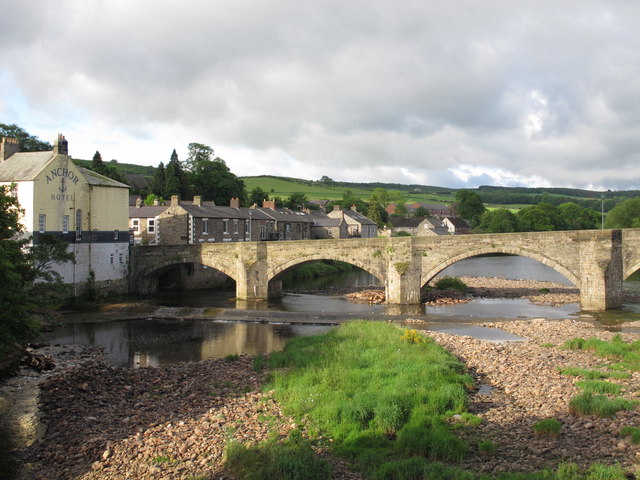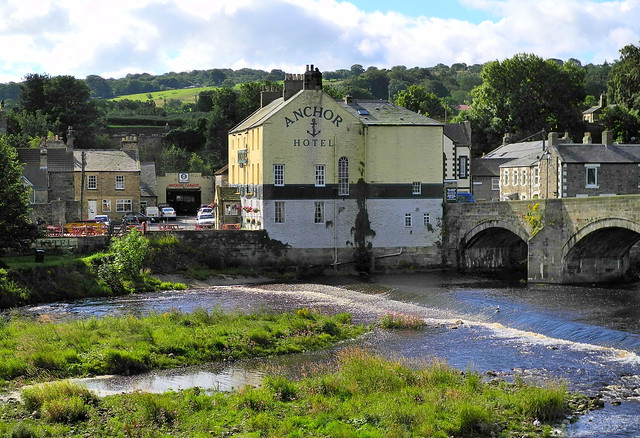The Old Bridge over the South Tyne at Haydon Bridge

-
Description
The earliest known reference to a wooden bridge here, replacing a ford upstream, was in 1296 when the River Tyne was bridged in only three places along its length. The other bridges were at Newcastle and Corbridge. It was the ancient wooden bridge that gate Haydon Bridge its name. In 1323, Anthony-de-Lucy (Lord of the Barony of Langley) obtained a royal charter granting him a market on Wednesdays at his manor of Haydon 'Brigge'. As a result of the subsequent trading opportunities, a new settlement developed at each end of this strategic river crossing; as distinct from the medieval town of Haydon one mile to the north. Records show that in 1336, the lord of Langley was receiving pontage, or tolls, from those transporting goods across the bridge. For example: One farthing: for 10 fleeces, 1 horse or 100 skins of fox, cat or squirrel. One penny: for a cart load of fresh meat. Twopence: for a cart load of lead. The 16th century was a turbulent period in the history of the bridge here, and it was often barred and chained against the Scots and lawless Border Reivers who were intent on serious affray. Sadly, the wooden bridge's defences were no match for Kinmont Willie Armstrong and 400 horsemen responsible for the 'attack and burnyage of Hawden brygges' in October 1587. Throughout its history the fabric of the bridge has suffered from the inundation of the River Tyne, particularly during the greatest flood ever experienced, on November 16th and 17th 1771, when it was swept away along with every other bridge on the river with the exception of Corbridge. A ferry boat replaced the bridge until rebuilding was completed in January 1774 at a cost of £1,350. This was not the last time the ferry boat was required. In December 1806 one of the bridge's arches fell into the river, in December 1815 a snowmelt flood carried two of the arches away and in 1909 two arches collapsed into the rivet On Wednesday September 1st 1909, two arches of the bridge collapsed into the river without warning. The bridge was re-opened in April 1910. By the 1960s the six-arch bridge, with its single line traffic controlled by lights, was unsuitable for the increasing number and size of vehicles using it. After a new five span concrete bridge was opened in 1970, the old bridge was restricted to pedestrian use only. From the Panel funded by Haydon Bridge Parish Council -
Owner
Robert Cutts -
Source
Flickr (Flickr) -
License
What does this mean? Attribution License
-
Further information
Link: https://www.flickr.com/photos/21678559@N06/51349319856/
Resource type: Image
Added by: Simon Cotterill
Last modified: 3 years, 6 months ago
Viewed: 538 times
Picture Taken: 2021-07-13T12:07:03 -
Co-Curate tags



